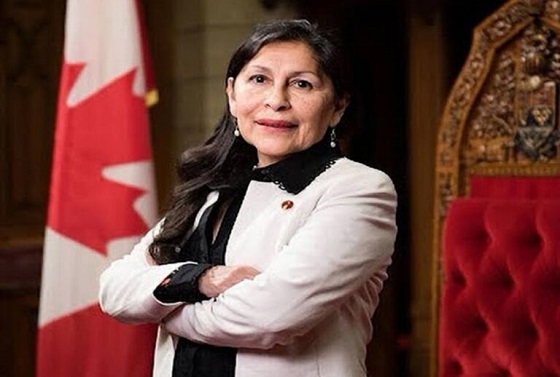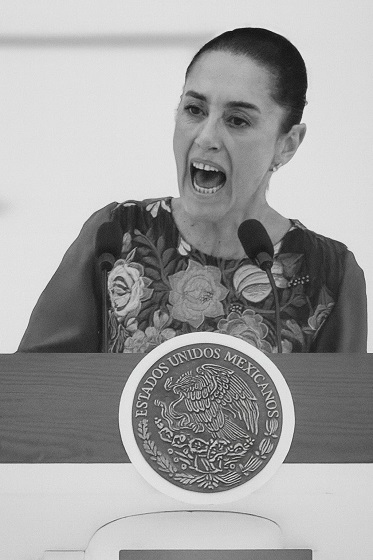Four days earlier, the Toronto G7 had agreed that global climate change required “priority attention.” Before the month was out, the Toronto climate conference declared that humanity was conducting an uncontrolled experiment “whose ultimate consequences could be second only to a global nuclear war.” In September, Margaret Thatcher gave her famous speech to the Royal Society, warning of a global heat trap. “We are told,” although she didn’t say by whom, “that a warming of one degree centigrade per decade would greatly exceed the capacity of our natural habitat to cope,” an estimate that turned out to be a wild exaggeration. Observed warming since then has been closer to one-tenth of one degree centigrade per decade. Two months later, the Intergovernmental Panel on Climate Change (IPCC) held its inaugural meeting in Geneva.
The tendency to catastrophism was present at the outset of global warming. The previous year, at a secretive meeting of scientists that included the IPCC’s first chair, it had been recognized that traditional cost-benefit analysis was inappropriate, on account of the “risk of major transformations of the world of future generations.” The logic of this argument requires that climate change be presented as potentially catastrophic—otherwise, the cure would appear worse than the putative disease.
Although catastrophism gave climate change emotive power, the most consistent feature of climate change is the failure of predictions of catastrophe to materialize. In 1990, Martin Parry, a future cochair of an IPCC working group, produced a report claiming that the world could suffer mass starvation and soaring food prices within 40 years. Yet the prevalence of undernourishment in developing countries has been on a downward trend since the 1970s and was nearly halved, from 23.3% in 1991 to 12.9% in 2015.
Although global warming conquered the West, it failed in the East. The model for international environmental cooperation was the 1987 Montreal Protocol on protecting the ozone layer. Its negotiation and ratification was led by the Reagan administration, which recognized that the U.S. would be the biggest beneficiary from having a strong treaty. Thanks to U.S. leadership, the negotiations were conducted quickly (in a matter of months) and the protocol has teeth, containing strong incentives for countries to join and the threat of trade sanctions for those that do not.
This path was quickly blocked for climate change. At the end of 1988, the Maltese government sponsored a resolution of the UN General Assembly on the conservation of the climate as mankind’s common heritage, the subtext being that rich countries shouldn’t negotiate a climate change treaty and then impose it on the rest of the world. The advantage of going down the UN route was that it led to the creation of a permanent and growing bureaucratic infrastructure with annual meetings to keep global warming’s place in public discourse. The downside is that negotiating texts must be agreed by consensus, foreclosing the possibility of a Montreal-like negotiating process and outcome. In 1990, the General Assembly adopted a resolution establishing the Intergovernmental Negotiating Committee for a Framework Convention on Climate Change, which produced a final text in time for the 1992 Rio Earth Summit.
The most important features of the 1992 climate convention are its ground plan, carving the world in two, with the developed North listed in Annex I, and the doctrine of “common but differentiated responsibilities” (the first principle listed in the convention and arguably its governing one). The bifurcation was made concrete in 1995 at the first conference of the parties in Berlin. Presided over by Angela Merkel as Germany’s environment minister, the Berlin Mandate stipulated that Annex I parties should strengthen their commitment to decarbonize on condition that non–Annex I parties did not, preparing the way for the Kyoto Protocol two years later.
The Clinton administration hadn’t given much thought to the implications of the Berlin Mandate. The Senate did. In July 1997, by 95 votes (including those of then-senators Biden and Kerry) to zero, it adopted the Byrd-Hagel resolution: America should not sign any protocol that imposed limits on Annex I parties unless it also imposed specific, time-tabled commitments on non–Annex I countries. Although the Clinton administration signed the Kyoto Protocol, the Senate had killed U.S. participation; it was left to the incoming president, George W. Bush, to garner the opprobrium for stating the obvious. Both he and Barack Obama pursued essentially the same post-Kyoto strategy of trying to get China and other major emerging economies to make treaty commitments to decarbonization, an attempt that failed at the 2009 Copenhagen climate conference, when China, India, South Africa, and Brazil vetoed a new climate treaty.
In picking up the pieces, Todd Stern, President Obama’s climate negotiator, had the twin objectives of crafting something that China would accept but that didn’t require the Senate’s advice and consent. The outcome was the Paris climate agreement. It embodies the climate equivalent of Mikhail Gorbachev’s Sinatra Doctrine of allowing individual parties to the agreement to “do it their way.” Hailed as a game changer in the fight to save the planet, the reality of Paris was rather different. Just as Gorbachev’s Sinatra Doctrine was an admission that the Soviet Union had lost the Cold War, the Paris agreement signaled that the West had given up on having a global decarbonization regime, with credible sanctions against free riding.
Although the Obama administration played an essential role in its gestation, the U.S. is the biggest loser from the Paris agreement. America is to forfeit its recently won position as the world’s largest producer of hydrocarbon energy. For what?
The story of carbon dioxide emissions is acceleration in the declining share of Western emissions. The year 1981 was the last one in which the West’s energy and cement manufacture carbon dioxide emissions were greater than the rest of the world’s (the latter includes Japan—culturally non-Western, ambivalent about climate change, and the only nation to have hosted a major climate conference presided over by a foreign national). By 1988, despite the economic expansion of the 1980s, the West’s emissions had grown by only 3.8%, while the rest of the world’s had grown by 27.0%.
After 2002, non-Western emissions grew even faster. In the 12 years before 2002, non-Western emissions grew by 21.2%; and in the subsequent 12 years, by 76.8%. By 2014, with Western emissions broadly flat over the 24-year period, Western emissions had shrunk to 26% of the total, and the share of non-Western emissions had risen to 74%. In less than a decade and a half, the increase in non-Western emissions outstripped the combined total of U.S. and E.U. emissions. In terms of affecting the physics of global warming, it doesn’t really matter what the West does any more.
William Nordhaus, the world’s preeminent climate economist, offers a brutal assessment of climate policy. “After 30 years, international policy is at a dead end,” he said in a little-noticed October 2020 presentation to the European Central Bank. “We have policies, but they have not been effective, and they’re getting us basically nowhere.” The culprit, in Nordhaus’s view? The free-rider problem. Nordhaus’s solution is to replace the current structure with a “club” whose members agree on a uniform price for carbon dioxide (he suggests $50 per ton of CO2) plus a straight 3% penalty tariff on imports from non-club members. What Nordhaus proposes, in essence, is the Montreal Protocol structure adapted for climate change.
Joe Biden campaigned to restore U.S. climate leadership and rejoin the Paris agreement. The two are contradictory. Following the Europeans down the dead end of a three-decade-old UN process hardly constitutes leadership. Heeding Nordhaus’s advice and abandoning the UN process is something that only an American president can do. But that would be to assume that the purpose of the UN is to moderate global warming.
Days before the Paris conference, Maurice Strong died. A committed environmentalist, no person did more to put environmentalism on the international agenda, leading the 1972 Stockholm UN conference on the environment and the Rio Earth summit 20 years later. A small gathering was held at the Paris conference to share reminiscences about Strong and his achievements. One of his aides at the Stockholm conference recalled asking him what the policy of the conference should be. “The process is the policy,” Strong replied.
Strong’s genius was to understand that a self-perpetuating UN process would continuously accrete money, influence, and, above all, power. Environmentalism would not have become the dominant ideology in the West without the deployment of the UN’s climate apparatus: the annual cycle of climate conferences spliced periodically with ones that are going to save the planet (Kyoto in 1997; Bali in 2007; Copenhagen in 2009; Paris in 2015; and Glasgow in 2021). Then there’s the IPCC, set up by the UN Environment Programme and the World Meteorological Organization, and its five—soon to be six—generations of assessment reports.
“Embedded in the goal of limiting warming to 1.5 degrees Celcius is the opportunity for intentional societal transformation,” the IPCC says in its scientific assessment of the 1.5°C target. All ideologies seek power. Seen in this light, global warming gave environmentalism the means for it to conquer the West and become the dominant ideology of our age. Environmentalism’s attitude toward nuclear power provides a test for this proposition. If the paramount concern of environmentalists had been to reduce emissions of carbon dioxide and slow down climate change, they would campaign to keep existing nuclear power stations and build new ones. Yet viable nuclear power stations are being prematurely closed in California, New York, Germany, and Belgium. Why?
Nuclear power is a Promethean crime of humanity stealing the deepest secrets of nature to release unlimited quantities of energy, in the eyes of environmentalists—a crime far worse than global warming. Instead, humanity must live within the rhythms and constraints decreed by nature; hence environmentalists’ belief that power stations should be replaced by inefficient, weather-dependent wind and solar farms.
The growth of wind and solar generation is not a market-driven phenomenon of a superior technology displacing an obsolete one. It’s what happens when governments heavily subsidize zero-marginal cost output, flooding wholesale markets with unwanted electricity when there’s too much sun and wind and risking power failures when there’s too little. The ubiquity of wind and solar symbolizes environmentalism reversing the logic of the Industrial Revolution in transforming predominantly agrarian societies at the mercy of climate to weather-resistant ones and helps explain the contrasting fortunes of environmentalism and Marxism. Environmentalism succeeded in the West and has become part of the political mainstream, to the extent that it defines politically acceptable opinion. Marxism lost in the West but thrived in preindustrial societies, because the political priority remains economic development. In practical terms, this is synonymous with industrialization and carbonizing their economies.
The outcome has been to shift the balance of climate power from the West to the rest of the world and the major emerging economies, in particular. Yet the lopsided arithmetic of the West versus the rest’s emissions has not softened the effectiveness of global warming as an ideological weapon because it is not based on any rational calculus but derives from its threat of planetary catastrophe. The future, as it had been in Marxism, again becomes “the great category of blackmail,” as the French philosopher Pascal Bruckner writes in “The Fanaticism of the Apocalypse.”
Climate change does represent an existential threat to Western civilization, although not in the way environmentalists say. Net-zero climate policies threaten to undermine the internal cohesiveness of Western societies and drain them of economic vitality. Externally, they will accelerate the redistribution of power away from the West to those nations that decide not to decarbonize, especially to China. Decarbonization will see the progressive elimination of high-paying, high-productivity blue-collar employment such as coal mining, oil and gas, steelmaking, and energy-intensive manufacturing. The aristocracy of labor will become an extinct social class; instead, as social mobility stagnates and class stratifications solidify, social geographer Joel Kotkin foresees the coming of neo-feudalism.
Accompanying these regressive social developments is the atrophying of democratic politics. Net-zero climate policies require reorganizing society around the principle of decarbonization—not through a couple of election cycles but over the next three decades. Net-zero must therefore be put beyond the reach of democratic politics so that voters cannot reverse a decision that was taken for them. This provides a better fit for a post-democratic polity such as the European Union. Britain has a statutory climate change committee to hold the government to account for meeting decarbonization targets.
Although the Biden administration has adopted a target of net-zero by 2050 and of halving greenhouse gas emissions by 2030, Congress has not passed—and is unlikely to pass—climate legislation mandating these targets. Nonetheless, American corporations in droves are pledging their own net-zero targets. Wall Street and ESG (environmental, social, and governance) investing and climate disclosures, which the SEC intends to mandate, have opened an alternative route on the basis of what gets measured gets managed.
Larry Fink, CEO of BlackRock, the world’s largest asset manager, candidly admits that forcing companies to disclose their emissions isn’t transparency for transparency’s sake: “disclosure should be a means to achieving a more sustainable and inclusive capitalism.” This collusion between the administrative state and climate activists to bypass Congress has been condemned by Republicans on the Senate Banking Committee. “Activists with no fiduciary duty to the company or its shareholders are trying to impose their progressive political views on publicly traded companies, and the country at large, having failed to enact change via the elected government,” Senator Toomey and his colleagues wrote in a letter to SEC chair Gary Gensler earlier this month.
In addition to this usurpation of the political prerogatives of democratic government, forcing business to take on governmental functions to address societal problems will see them, over time, acquire the modes and culture of government bureaucracies. This subtracts from the core economic function of the business corporation in a capitalist economy. “The capitalist economy,” in the words of the growth economist William Baumol, “can usefully be viewed as a machine whose primary product is economic growth.” What distinguishes it most sharply from all other economic systems are free-market pressures that force firms to engage in a continuous, competitive process of innovation. “This does not happen fortuitously,” writes Baumol, “but occurs when the structure of payoffs in an economy is such as to make unproductive activities such as rent-seeking (or worse) more profitable than activities that are productive.”
If CEO remuneration is aligned with ESG objectives and decarbonization targets and if directors risk being voted off boards for not having them, businesses will increasingly focus their efforts on meeting these non-business objectives. As this incurs costs and impairs business performance, businesses will turn to politicians to seek protection from their antisocial competitors that refrain from doing the government’s work. Capitalism’s legitimacy rests on its record of raising living standards through its prodigious capacity to generate productive wealth. Should that slow down to a trickle, capitalism becomes hard to justify, even though the explanation is that the system is no longer a capitalistic, free-market one.
Global warming flourished during a period when the world had taken a holiday from geopolitics. It had entered the world as geopolitical tensions were easing. Six months earlier, in December 1987, Ronald Reagan and Mikhail Gorbachev signed the INF treaty, eliminating intermediate nuclear missiles. By the time of the Rio Earth Summit, the Soviet Union was gone. Geopolitics is now back. There is a broad consensus in Washington that President Xi’s China is a strategic rival to the U.S. Yet the new strategic realism ceases when it comes to climate change.
According to the IPCC, net-zero requires “transformative systemic change” that involves “unprecedented policy and geopolitical challenges.” The International Energy Agency calls decarbonizing the energy sector “perhaps the greatest challenge humankind has faced.” The West embarking on this process when China does not is akin to signing a strategic arms-control treaty binding on only one side: it can only be to China’s strategic advantage. So far, the grip of environmentalism on Western policymakers lulls them into the belief that global warming operates in a strategic vacuum, insulated from the factors that constitute geopolitical weight and ambition. It is in that sense that climate change constitutes an existential threat to the West.
Rupert Darwall is a senior fellow of the RealClear Foundation and author of Capitalism, Socialism and ESG.


















